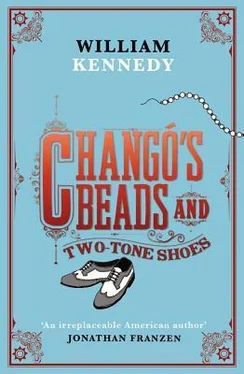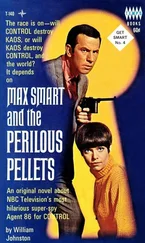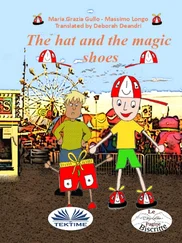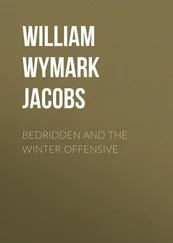“A writer doesn’t need a résumé.”
“Are you really ready to die?”
“Always.”
When Hemingway blew off the top of his head with a shotgun Quinn felt he’d been cut off in the middle of a sentence that was going to explain an unknown that had obsessed him since he decided to become a writer. He hadn’t seen the man in four years and his death was a shock that lasted for days. The key to the unknown might now be lost forever. Hemingway knew where it was. He had gone there and held it in his hand and came back to write and prove he had found it. If Quinn could find that place maybe he’d be able to figure out how to write what had to be written; but he wasn’t anywhere near there yet, and with Hemingway gone the solution seemed very far off.
Wait a minute — only Hemingway had the key?
Others had it, but I knew him and could talk to him.
He couldn’t have told you any secrets. He had four books going and couldn’t finish any of them. He was fading. You met him too late.
He could still talk, even if his ambition outdistanced what was left of his talent. He found the answer early on and kept telling us what it was, but he never got it all out. It was his iceberg principle: only the tip revealed, the rest stuck in his throat.
On the street at the Romanesque Arch a new Chevrolet sedan was idling, the Cooney early birds, and a uniformed guard sat behind the wheel of another car. Juan got out and spoke with the guard and shook his hand, then went to the Cooney car and spoke to the driver. The guard opened the gate for the two vehicles and Juan got back into the car and led the way to the south section of the cemetery, a large open field of mown grass. The six participants got out of their cars. Hemingway wore a white guayabera and black trousers and black dress shoes, a dress-up occasion for him. In the new morning light Quinn could see an animation in his face akin to what it was like while Cooney was singing about slivers.
“Where’s the doctor?” Quinn asked him.
“We won’t need a doctor.”
“There should be a doctor.”
“It’ll work out,” Hemingway said.
Cooney had a small hat on, a modified Panama he’d cut into a tight brimless skullcap that covered his bandage. His lower lip quivered a bit, and why not? His friends wore pale orange Hawaiian shirts with muscles in them and they held guns in their hands, one each. They weren’t ugly or grotesque, not American Gothic, but there was menace in their haircuts. Cooney was wearing a seersucker sport coat and made a point of taking it off and tossing it on the ground as he got out of the car. He walked toward Hemingway with an earned purpose that had brought about this moment, this confrontation of a little ol’ Baltimore pissant with the greatest fucking writer of the century, and that’s America for you, except this is Cuba. But Cooney knew time, God, fervency, and the pursuit of happiness were on his side. He was facing down the smile of a man of unknown dimension. His new knowledge of Hemingway could not really encompass what the writer stood for in American history or the literary canon or even café society, and he couldn’t possibly know what this endeavor of his would lead to — a fiasco, a disaster, a tragedy, a burlesque, a fantasy, a dream, a populist manifesto, a personification of democratic eventuation? Whatever it might be it certainly was like nothing he’d ever experienced, and he was still taking his second step toward Hemingway when he decided to spit — to the left — and Hemingway noted this without comment — and Cooney wondered if there would come a moment in which he would find a new lyric for a song that was apt for this instant — this confrontation between the nobody and the somebody who doesn’t yet know I’m one hell of a shot, I can untie your shoes at fifty feet, old buddy. You’re nobody till somebody shoots you. But get on with it Cooney, never mind this nonsense. Move ahead and spit in his eye. No, don’t. He don’t rate that. He showed up. He’s some sumbitch, no doubt about it, to come and see this out with me. I’m gonna be all right. I got the best guns they are and he probably does too, but that don’t matter. Go for it, bud, say what you gotta say.
“You punched me for no reason,” he said.
“I had a reason,” Hemingway said.
“What was it?”
“I don’t remember.”
“That ain’t a reason.”
“Wasn’t much of a reason, whatever it was. Maybe that’s why I don’t remember it.”
“I never done one damn thing to you.”
“That’s right, you didn’t. Maybe something in you, or in that song you sang, rubbed me wrong. A lot of things in this world rub me wrong.”
“And you punch ’em all out, do you?”
“I punch out some.”
“Some of ’em punch back, I expect.”
“You did.”
“You can’t say why you give me a sucker punch.”
“I was pissed off. I don’t know at what. You were a handy way of letting off steam.”
“If that ain’t crazy.”
“Not the first time that’s been said. You got all the gun you need? I got two.38s I got in France. You can have either one. Test ’em out if you want. Each one has a single bullet in the chamber now. But my man’s got extra bullets.”
“I don’t need no French guns. I got a Smith and Wesson.”
He motioned to the seconds and one of the men stepped forward with a paper bag and took out Cooney’s weapon of choice, a.38 six-shooter with a four-inch barrel. The second cracked the gun and put one cartridge into a chamber of the cylinder. He snapped the barrel into place and handed the gun to Cooney. Juan opened the green velvet box with Hemingway’s matching.38s, both with pearl handles and two-inch barrels, and offered them to the author, who took one, confirmed it had a single bullet in the chamber and showed it to Cooney.
Quinn stepped between the two men. “This doesn’t have to go forward, you can solve this with words,” he said. “Nobody needs to get shot here. The event that started it is long gone and you’ve both talked it out. I suggest you shake hands and get on with life.”
“I didn’t come here to shake hands,” Cooney said.
“Well put,” said Hemingway. “Start the count, Mr. Quinn.”
Hemingway turned his back to Cooney and Cooney did the same.
“All right,” Quinn said. “It’s ten paces, then you turn and face each other. One shot is all that’s allowed.”
“Start the count,” Hemingway said.
“One,” said Quinn and the duelists stepped off and Hemingway turned and in an underhanded arc he tossed his pistol to Quinn.
“Two,” said Quinn as he caught it, “hold it, you don’t have a weapon.”
“Three, don’t need it,” Hemingway said, stepping out, “carry on counting.”
Four, and Cooney turned to see what had happened but kept moving forward, his gun in his right hand, his arm cocked.
“Five,” said Hemingway.
“He don’t have a weapon,” Cooney’s second said. “It’s a trick.”
“Six,” said Hemingway. “No trick.”
“Seven,” said Quinn, looking to see if the pistol had a safety.
“Eight,” said Quinn and Hemingway together.
“Nine,” said Quinn. “Ten.”
Hemingway turned to face Cooney and stood with his hands at his side, palms outward. Everybody had a gun in hand: Quinn holding Hemingway’s.38, Juan with Hemingway’s other.38, Cooney’s second and his other friend each with pistols, and Cooney with his. Only Hemingway was unarmed.
“Shoot,” said Hemingway.
“Shoot an unarmed man,” Cooney said, his arm at his side.
“I’ve got arms. I choose not to use them.”
“So you ain’t got the guts to shoot at me.”
“I got the guts. I would prefer not to.”
Читать дальше












